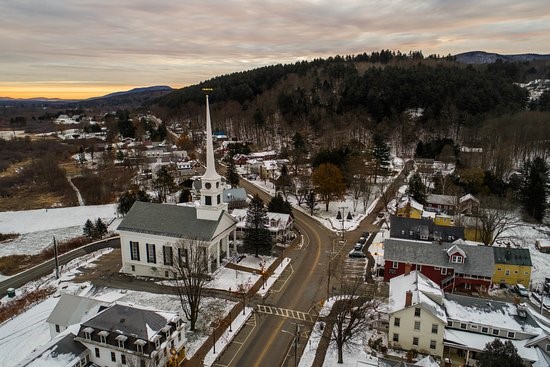“The art of living in a small town is one of the most difficult to acquire.” ~ Doris Lessing * * *
On Monday, June 10th, New York Times op-ed columnist David Leonhardt wrote about the rise of geographic inequality as “one of the major economic trends of recent decades”. He reminded us that while a few big cities like New York, Chicago, Boston, and San Francisco are thriving: “Most small cities and rural areas have struggled”. He followed that observation with the fact that there are exceptions—”smaller cities that are thriving and whose success presumably offers some lessons.” The reason for the economic vibrancy of these small towns that buck the trend seems to be part of an easily recognizable paradigm: they have colleges within their boundaries.
Pointing out the reasons for the healthy economics associated with a profile of higher education, Mr. Leonhardt finishes by admitting that it’s possible there may be small towns that are thriving without colleges, but he offered no examples and in fact, requested that his readers email him with candidates if they had any. I’ve not seen any responses yet, but I wrote him immediately. As someone who’s lived in New York City all her life, as well as in other small towns, I feel strongly that the health of the places we inhabit doesn’t rely only on financial wealth and the power of an institution to ‘support’ the community. I believe strongly in the economics of opportunity born of diversity, and that’s an ethos buoyed by mixed cultures, ages, backgrounds, and preferences. In short, a melting pot of people is what makes an environment thrive—first emotionally and then financially, because the mixed-bag of cultures opens people’s minds to possibility, and that leads to entrepreneurism and hope.
As an example from my own experience of such a small town place, I offer Stowe, Vermont as a candidate. Yes, relatively near-by Burlington has a university, but it doesn’t affect the ambiance or financial viability of Stowe, over an hour away. Settled by loggers and sheep farmers, the town fell on harder times during the Great Depression, but Roosevelt’s Civilian Conservation Corps established camps and began clearing ski trails on Mt. Mansfield. Three resident Swedish families set off an interest in skiing, which was clearly the original impetus for Stowe’s continuing prominence as a winter resort through the twentieth century.
But there were many times when outsiders, who fell in love with the beauty and vibrancy of the surroundings, stayed to become citizens of small town Stowe and contribute to its success—the Trapp family of The Sound of Music fame comes readily to mind, yet there were financial wizards of Wall Street’s early years and CEOs of America’s corporate giants who also contributed to the town, saving it many times from both financial insecurity and the ‘sameness’ of an all too homogeneous environment.
Artists, intellectuals, craftsmen and women, and executives ended up in Stowe, and hard-working people of every background have been part of the diverse population since the village’s founding. There have been some bitter feelings among the locals toward the ‘deep pockets’ on the mountain (who are third and fourth generation residents now), and yet everyone has continued over 100 years of this amalgam of eccentricities, backgrounds, and financial naivete and sophistication to appreciate each other’s company.
The mix is what makes an environment work, I believe, because there’s nothing more boring or more likely to scare young people away than a lack of variety. Without an open culture and many different types of people, we all lose hope for change, but it doesn’t take higher education to supply that. I admit to prejudice in favor of the melting pot scenario, most likely because I grew up in New York City, but I and many others from every kind of place on earth have found just such an environment in Stowe. I’m sure there are other small towns capable of delivering the spice of life we all need, and those that do tend to flourish both philosophically and economically, thanks to the richness of their cultures rather than their institutions.


Provocative subject. Diversity has so many dynamics and elements and agree that it is necessary for an expanded life and an escape route to rigid held to beliefs. Perhaps the reference to college towns. Paradoxically the transient nature of college towns adds to their dynamic, since a student from South Africa, or China, or Chile might spend four years there exposing the community to different life styles and belief systems.
Even in NYC, where one’s smaller community is their building, there is a tendency toward being surrounded and engaged with those who look and act like ourselves, yet at least we have the streets, neighborhoods, subways,and boroughs where the fuller range of diversity touches us, bumps into us and makes us take second looks.
Ironically, your essay makes me appreciate flux in communities more than I had realized. And in response to Leonhardt challenge, I would throw in Woodstock NY, Provincetown, MA, Taos New Mexico, Sheridan Wyoming, as additional examples of small towns that can thrive and attract a fuller range of stimulation.
paul
Wonderful examples, and I’ll bet others could come up with more names devoid of universities. It’s interesting how many of them are in New England, a locale I would consider to be less diverse, and yet obviously it attracts people from all over because of its beauty and peace–thus the diversity. Thanks for commenting, Paul. Always good to hear from another perspective.